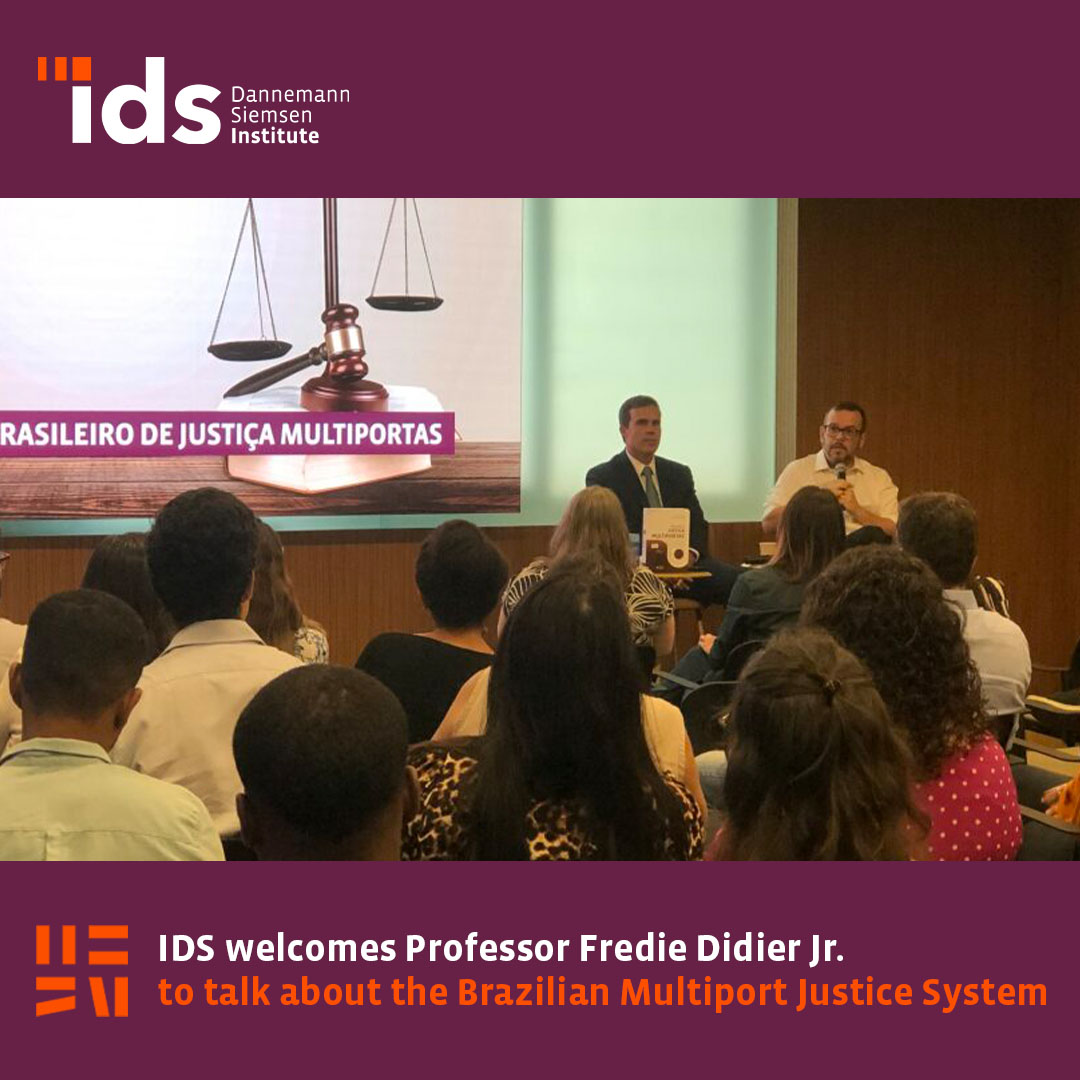Share
Lecture
March 25th, 2024 (Monday)
Dannemann Siemsen Auditorium. Av. Rodolfo Amoedo, 300 - Barra da Tijuca
Free
IDS welcomes Professor Fredie Didier Jr. to talk about the Brazilian Multiport Justice System
Yesterday (25), the Dannemann Siemsen Institute (IDS) welcomed Fredie Didier Jr., tenured professor at the UFBA Law School and lawyer, to talk about the “Brazilian Multiport Justice System”, the central theme of the book “Introduction to Multiport Justice – Legal Problem-Solving System and the Profile of Access to Justice in Brazil”, launched in 2024, authored by Fredie Didier Jr. and Leandro Fernandez.
The talk was moderated by IDS board member Marcelo Mazzola, who noted that the book aims to “analyze the Brazilian justice system, what are the doors to access to justice, the advantages and disadvantages of each method of conflict resolution and how to behave in the face of this”.
Didier began his reflection by dealing with the concepts surrounding the legal problem. He noted that conflict should not be the main object of legal practice, since a justice system is a set of elements, subjects and procedures that interact to solve legal problems in each country. In addition to consensual solution, self-court action and heterocomposition, the professor defended a fourth type, which is extrajudicial enforcement.
The professor then explained the title of the book, bringing up the meaning of “multi-door court” which, first conceived by an American professor in the 1970s, refers to the notion of a court with multiple doors, which would serve as a solution center for various types of conflicts. In the book, Professor Didier expands the concept and rethinks Brazilian justice beyond the judiciary, and then brings in “multi-door justice”, using the metaphor of a public square where justice would be accessible in various ways, with the “doors” interacting and communicating, and so legal problems seek the best ways to solve them.
Thus, seeking the judiciary to solve legal problems would be just one of the ways of seeking justice, which can be sought at “other doors”, such as arbitration and other extrajudicial forms of conflict resolution.
Finally, the speaker defended the right of access to justice as the possibility of choosing which “door” or infrastructure is appropriate for resolving a given conflict.
The book “Introduction to Multiport Justice” can be purchased via the link: https://www.editorajuspodivm.com.br/introducao-a-justica-multiportas-sistema-de-solucao-de-problemas-juridicos-e-o-perfil-do-acesso-a-justica-no-brasil-2024

Lecture
March 25th, 2024 (Monday)
Dannemann Siemsen Auditorium. Av. Rodolfo Amoedo, 300 - Barra da Tijuca
Free